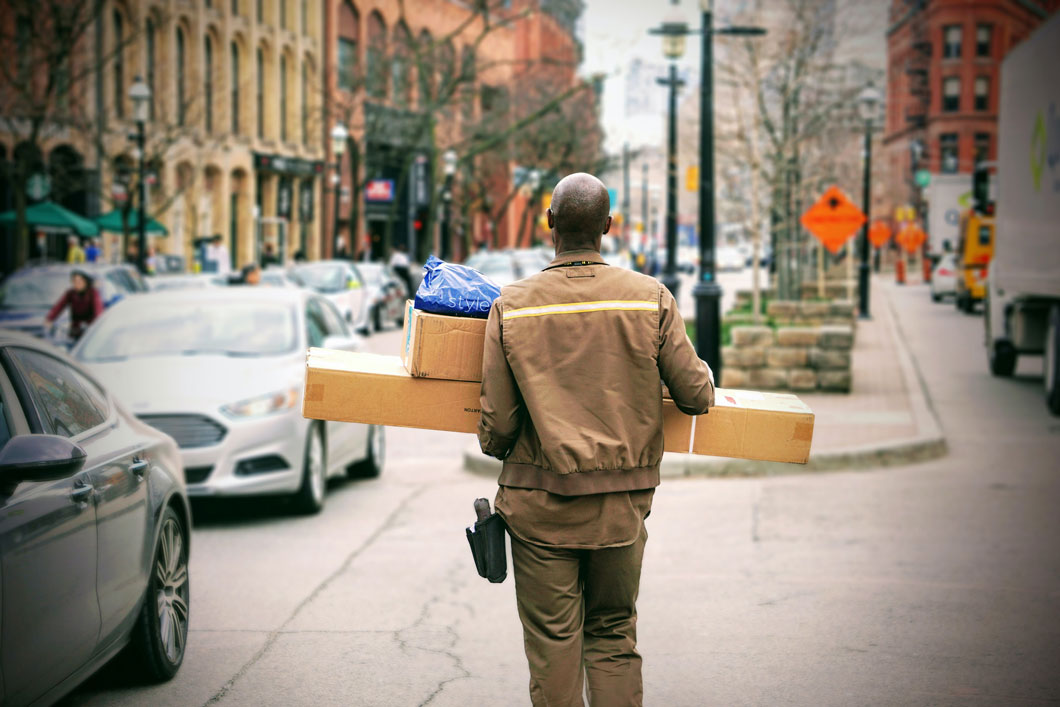Could we soon be seeing labels on our parcels revealing their carbon footprint? Industry professionals and politicians in Germany are calling for CO2 labels on all parcels, as part of its forthcoming postal law reforms. Where Germany goes, Britain may need to follow, says the UK-based international delivery company ParcelHero.
ParcelHero’s Head of Consumer Research, David Jinks M.I.L.T., says: ‘Germany is considering radical postal and parcel reforms, in what is expected to be the biggest shake-up of services in 30 years. Its Federal Ministry of Economics is reportedly weighing up legislation to introduce CO2 emissions information. The SPD MP Sebastian Roloff says: “Everything that focuses on more climate protection in parcel delivery is worth considering… There should be more transparency for consumers.”
‘Germany’s postal service, Deutsche Post, is backing these reforms. Ole Nordhoff, Chief Marketing Officer for Deutsche Post’s Post and Parcel division, says that CO2 labelling will create “transparency and comparability for users”. He believes that clearly defined standards for carbon emission measurements will reduce false information that “creates a climate-friendly impression”.
It’s not only parcels using the country’s postal service that may require new emissions labelling, Deutsche Post, part of the Deutsche Post DHL Group, wants to see all parcel services, including German couriers, introduce CO2 labels. Under the proposals, consumers would be able to see how many grams of CO2 are released on a shipment, and contrast one provider’s emissions with another’s.
Talking to Germany’s “Frankfurter Allgemeine” newspaper, Mr Nordhoff likens the introduction of CO2 emissions labels to food nutrition labels that list information on sugar, fat and salt contents, so customers can compare different products. Mr Nordhoff says: “We can well imagine something comparable in the parcel industry.”
If Germany does adopt such a plan, it might be difficult for parcel companies in other nations, who deliver into the country, to remain exempt from the scheme. Indeed, other countries may wish to follow suit. The UK has been a leader in many environmental initiatives, such as the move to end fossil-fuelled car sales, so it may look at this proposal with interest.
Supplying more comprehensive environmental information is an initiative other German parcel operators broadly support, with Hermes saying average emissions should be part of all operators’ annual reports. However, it cautions it’s not possible to anticipate the footprint of each individual parcel shipment.
It’s also true that Deutsche Post has something of an in-built advantage over other German operators when it comes to emissions. Not only does it already have around 23,000 electric vans and scooters for final mile deliveries but, in many areas, its postal workers can deliver parcels as well as letters on their daily rounds. Compared to couriers, that significantly reduces the number of separate delivery journeys for its parcels.
ParcelHero’s view is that supplying information to customers about average parcel delivery CO2 emissions is increasingly important. However, the feasibility of printing a label with the exact emissions for a particular delivery, before it has even taken place, is highly problematic. It’s impossible to predict the impact of re-routings, traffic jams, second delivery attempts, etc in advance.
Perhaps tellingly, even Germany’s Greenpeace spokesperson, Viola Wohlgemuth, is not entirely supportive: “The real problem with the booming online trade is not shipping in Germany, but the climate impact and waste of resources through the manufacture of the product itself,” she says.
One way in which international delivery companies try to accurately measure the true cost of a delivery and its environmental impact is by using volumetric weight to calculate the size of a package, rather than its actual weight. That’s because, to use an extreme example, a ton of feathers would take up far more space in an aircraft than a ton of lead – although ParcelHero doesn’t advise you send either by general courier service!
🏆
Creative Retail Awards - TICKETS NOW ON SALE!
19 September 2024, London
Join the excitement and prestige of the Creative Retail Awards, the ultimate celebration of innovation and excellence in retail, leisure and hospitality design, offering unparalleled opportunities for recognition, networking and celebration.
www.creativeretailawards.com
















